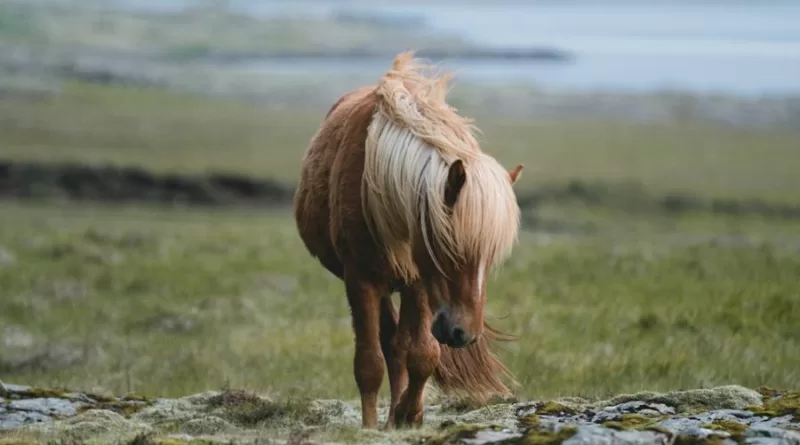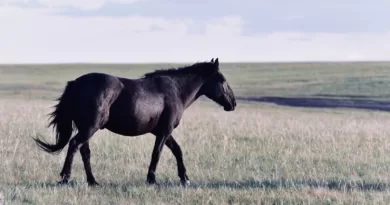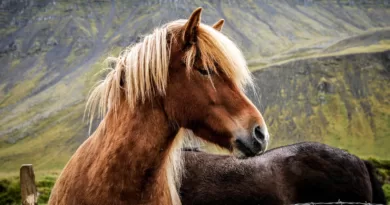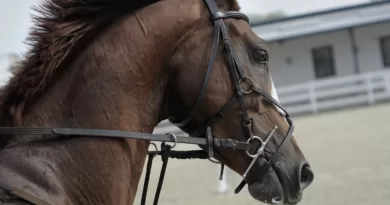Can Horses Have Cucumbers
Understanding the Equine Diet
The equine diet plays a crucial role in the overall health and well-being of horses. Understanding what horses need to eat is essential for horse owners and caretakers. Horses are herbivores, which means their diet consists primarily of plant material. They are designed by nature to consume large amounts of fiber from forage, such as hay or pasture grass. This fiber is essential for proper digestion and maintaining a healthy weight.
In addition to fiber, horses require a balanced intake of vitamins, minerals, and protein. These nutrients are necessary for various bodily functions and to support the horse’s growth, reproduction, and performance. It is important to provide horses with a well-rounded diet that fulfills their nutritional requirements. This includes feeding them a variety of high-quality forage, such as grass hay or alfalfa, along with the appropriate amount of concentrated feed based on their individual needs. Understanding the equine diet allows horse owners to make informed decisions when it comes to their horse’s nutrition, ensuring their overall health and performance are optimized.
Nutritional Value of Cucumbers
The nutritional value of cucumbers is not particularly high for horses. They are low in calories and contain mostly water, making them a hydrating snack option. Cucumbers also provide some vitamins and minerals, including vitamin K, vitamin C, magnesium, and potassium. However, they are not a significant source of essential nutrients for horses and should be considered more as a treat than a staple part of their diet.
While cucumbers can offer a refreshing and crunchy snack for horses, it is important to note that they should be fed in moderation. Feeding large amounts of cucumbers to horses can lead to digestive upset, as the high water content may cause loose stools or diarrhea. Additionally, the skin of cucumbers can be tough and may be difficult for horses to digest, so it is recommended to peel them before feeding. As with any new food, it is always advisable to introduce cucumbers gradually into a horse’s diet and monitor their response to ensure they tolerate it well.
Digestive System of Horses
Horses have a unique and complex digestive system that allows them to efficiently extract nutrients from their diet. Unlike humans, horses are herbivores, meaning their digestive system is designed to process plant material. Starting with their strong teeth, horses are able to graze on grass and other forage, breaking it down into smaller pieces that can be easily swallowed. Once swallowed, the food travels down the esophagus and enters the stomach. However, unlike humans, horses’ stomachs are relatively small in size, capable of holding only a limited amount of food at a time.
From the stomach, the partially digested food moves into the small intestine, where a majority of nutrient absorption takes place. The lining of the small intestine is specially designed to increase the surface area available for nutrient absorption, ensuring maximum utilization of the ingested food. Any undigested material then enters the large intestine, where water absorption occurs, helping the horse maintain adequate hydration. Finally, the waste material is formed into feces and eliminated from the body.
This efficient digestive system allows horses to extract nutrients from a variety of plant materials, making them well-suited for grazing and consuming forages. However, it also means that horses have specific dietary requirements and must be fed an appropriate balance of nutrients to maintain optimal health. Understanding the digestive system of horses is crucial for horse owners and caretakers to make informed decisions regarding their nutrition to ensure their overall well-being and performance.
Safe Foods for Horses
Horses have unique dietary needs, and it is important for horse owners to understand which foods are safe for them to consume. While horses are herbivores and primarily feed on grass and hay, there are several safe foods that can be included in their diet. One of the safest foods for horses is carrots. Carrots are not only low in sugar but also provide essential vitamins and minerals. They are also a great source of hydration and can be a tasty and crunchy treat for horses. In addition to carrots, apples are another safe and popular choice for horses. Apples contain fiber, vitamins, and antioxidants, making them a healthy and nutritious option. It is important, however, to remove the apple seeds as they can be toxic to horses.
Another safe food option for horses is bananas. Bananas are a good source of potassium, which plays a crucial role in muscle function and nerve transmission. They are also rich in fiber and natural sugars, providing a quick energy boost for horses. Additionally, bananas are easy for horses to digest and can be a convenient and delicious snack. While these foods are generally safe for horses, it is essential to introduce them gradually into their diet and ensure moderation. It is also important to note that while these foods are safe, it is always best to consult with a veterinarian or equine nutritionist to ensure that a horse’s dietary needs are being met appropriately and they are receiving a well-balanced diet.
Can Horses Eat Vegetables?
Horses are herbivores and their natural diet consists mainly of grasses and plants. However, they can eat certain vegetables in moderation. Vegetables such as carrots, spinach, and peas can be a nutritious addition to a horse’s diet. These vegetables are packed with vitamins, minerals, and fiber, which can support the overall health and well-being of the horse. When introducing vegetables to a horse’s diet, it is important to start with small amounts and gradually increase the quantity, while closely monitoring the horse’s reaction and digestive system.
While some vegetables are safe for horses to consume, there are certain vegetables that should be avoided. Vegetables such as onions, garlic, and tomatoes can be toxic to horses and should never be fed to them. These vegetables contain compounds that can be harmful and may lead to digestive issues or even poisoning. It is always important to research and consult with a veterinarian before introducing any new vegetables into a horse’s diet to ensure their safety and well-being.
Benefits of Feeding Cucumbers to Horses
Feeding cucumbers to horses can provide several benefits to their overall health and well-being. Firstly, cucumbers are low in calories and high in water content, making them ideal for hydration during hot weather or intense physical activity. Horses that struggle to drink enough water may find cucumbers appealing and refreshing, helping to prevent dehydration and maintain optimal bodily functions.
Additionally, cucumbers are a good source of vitamins and minerals, including vitamin C, vitamin K, potassium, and magnesium. These nutrients play vital roles in supporting the immune system, promoting healthy bones and muscles, and aiding in proper nerve function. By incorporating cucumbers into the equine diet, owners can help ensure that their horses receive the necessary nutrients for optimal health and performance. However, it is important to note that cucumber should always be given in moderation and as part of a balanced diet to avoid any potential risks or digestive issues. Stay tuned to learn more about the potential risks of feeding cucumbers to horses and how to prepare them properly.
Potential Risks of Feeding Cucumbers to Horses
Feeding cucumbers to horses can have some potential risks that owners should be aware of. One of the main concerns is the high water content of cucumbers, which can lead to digestive upset in horses, especially if they are fed in large quantities. The sudden increase in water intake can result in loose stools or even diarrhea.
Another risk of feeding cucumbers to horses is the presence of cucurbitacin, a compound found in some cucumber varieties. Cucurbitacin can cause toxicity in horses and may lead to symptoms such as gastrointestinal irritation, colic, or even liver damage in severe cases. It is important to note that not all cucumbers contain cucurbitacin, but it can be difficult to determine which ones do without proper knowledge or testing.
To ensure the safety of your horse, it is advisable to introduce cucumbers to their diet gradually and in small quantities. Monitoring their response and overall well-being is crucial, and if any signs of digestive upset or discomfort are observed, the cucumber should be removed from their diet immediately. As with any new food, it is always best to consult with a veterinarian before incorporating cucumbers or any other unfamiliar food into a horse’s diet.
Moderation is Key: Feeding Cucumbers to Horses
Feeding cucumbers to horses can be a nutritious and refreshing addition to their diet when done in moderation. Cucumbers are low in calories and high in water content, making them a hydrating treat for horses, especially during hot summer months. They also contain essential vitamins and minerals such as vitamin K, vitamin C, potassium, and magnesium, which can contribute to a well-rounded equine diet.
However, it is important to remember that moderation is key when feeding cucumbers to horses. While cucumbers are generally safe for horses to consume, excessive intake can lead to digestive issues such as diarrhea or colic. Therefore, it is recommended to offer cucumbers as an occasional treat rather than a staple feed. Additionally, it is crucial to wash the cucumbers thoroughly to remove any potential pesticides or bacteria before feeding them to your horse. Always introduce new foods gradually and monitor your horse’s response to ensure their digestive system remains in optimal health.
Preparing Cucumbers for Horses
Cucumbers can be a nutritious and refreshing treat for horses when prepared properly. Before feeding cucumbers to your equine companion, it is important to ensure that they are thoroughly washed to remove any dirt or pesticides. Organic cucumbers are an ideal choice, as they provide a natural and chemical-free option for your horse’s diet. Once cleaned, cucumbers can be sliced into bite-sized pieces for easy consumption. It is recommended to remove the seeds, as they can be harder to digest for horses. By following these simple preparation steps, you can offer your horse a healthy and enjoyable alternative treat.
In addition to preparation, it is crucial to consider the quantity of cucumbers you feed your horse. While cucumbers are generally safe for horses, moderation is key. Overfeeding cucumbers can lead to digestive upset, as the high water content may cause loose stool or bloating. It is best to start with small portions and monitor your horse’s reaction. If any adverse effects are observed, such as changes in stool consistency or discomfort, it is advisable to discontinue feeding cucumbers and consult your veterinarian. Remember, every horse is unique, and what works well for one may not be suitable for another.
Alternative Treats for Horses
Finding alternative treats for horses can be a fun and rewarding way to provide them with a little variety in their diet. While traditional horse treats are often made from grains and sugars, there are a variety of other options available that can be both nutritious and enjoyable for your equine companion.
One option to consider is fruits such as apples and carrots. Not only are these treats naturally sweet, but they also offer a good source of vitamins and minerals. Just be sure to wash them thoroughly before feeding them to your horse. Another alternative treat option is hay cubes or alfalfa cubes. These cubes are compact and easy to store, making them a convenient option for horse owners. They also provide a good source of fiber and can help keep your horse’s digestive system healthy.
What is the equine diet?
The equine diet refers to the specific food and nutrition requirements of horses to maintain their health and well-being.
Can horses eat cucumbers?
Yes, horses can eat cucumbers.
What is the nutritional value of cucumbers for horses?
Cucumbers are low in calories and high in water content, making them a hydrating and refreshing treat for horses. They also provide vitamins and minerals such as vitamin K, vitamin C, and potassium.
How does the digestive system of horses work?
Horses have a unique digestive system that relies on a steady intake of fibrous materials. Their digestive system consists of a large fermentation chamber called the cecum, where the breakdown of fibrous materials occurs.
What are some safe foods for horses?
Besides their regular diet of hay, grass, and grains, horses can safely consume a variety of fruits and vegetables, including cucumbers, apples, carrots, and watermelon.
What are the benefits of feeding cucumbers to horses?
Feeding cucumbers to horses can provide hydration, a refreshing treat, and a source of vitamins and minerals. It can also add variety to their diet and serve as a low-calorie option for overweight or insulin-resistant horses.
Are there any potential risks of feeding cucumbers to horses?
While cucumbers are generally safe for horses, feeding too many at once or feeding them in large chunks without proper preparation can pose a choking hazard. Additionally, horses with certain health conditions may need dietary restrictions, so it’s best to consult with a veterinarian.
How should cucumbers be prepared for horses?
Cucumbers should be washed thoroughly to remove any dirt or pesticides. It is recommended to cut them into small, bite-sized pieces before feeding them to horses.
What are some alternative treats for horses?
Some alternative treats for horses include apples, carrots, watermelon, bananas, and celery. It’s important to introduce new treats gradually and monitor how the horse responds to them.




